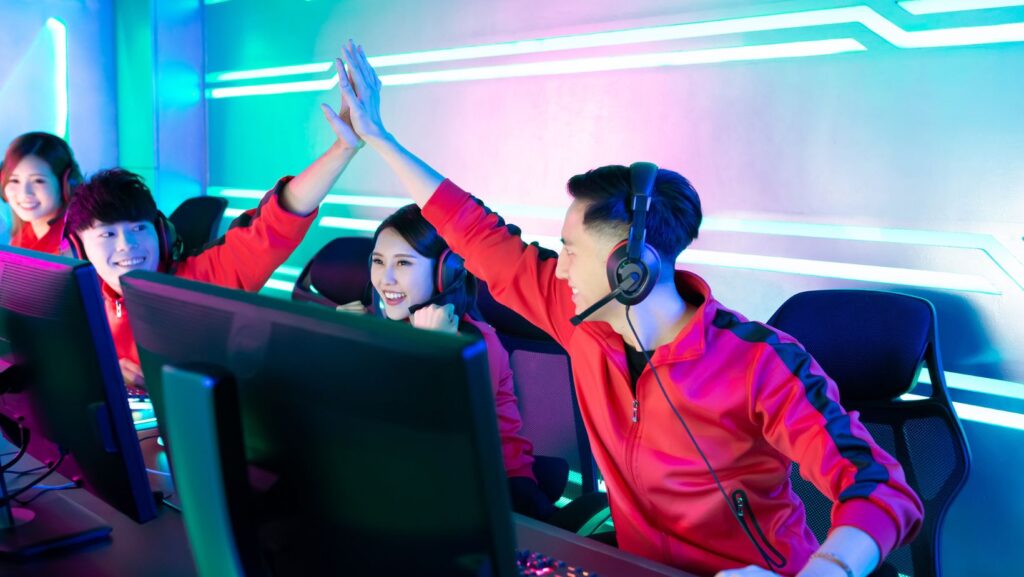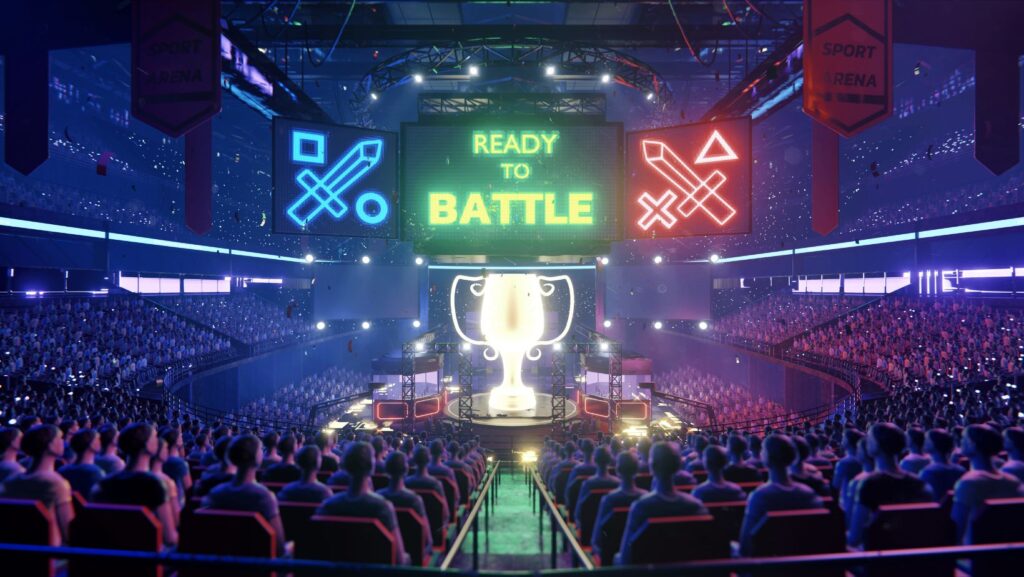 In recent years, eSports teams have skyrocketed in popularity, transforming competitive gaming into a global phenomenon. These teams, composed of skilled players specializing in various video games, compete in high-stakes tournaments that attract millions of viewers worldwide. With the rise of streaming platforms and social media, eSports has become a mainstream entertainment option, rivaling traditional sports in both viewership and revenue. The allure of eSports teams lies in their ability to blend teamwork, strategy, and individual skill, creating a dynamic and engaging spectator experience. Major organizations invest heavily in their rosters, training facilities, and support staff to ensure their teams stay at the top of their game. As the industry continues to grow, so does the potential for eSports teams to influence popular culture and redefine what it means to be a professional athlete in the digital age.
In recent years, eSports teams have skyrocketed in popularity, transforming competitive gaming into a global phenomenon. These teams, composed of skilled players specializing in various video games, compete in high-stakes tournaments that attract millions of viewers worldwide. With the rise of streaming platforms and social media, eSports has become a mainstream entertainment option, rivaling traditional sports in both viewership and revenue. The allure of eSports teams lies in their ability to blend teamwork, strategy, and individual skill, creating a dynamic and engaging spectator experience. Major organizations invest heavily in their rosters, training facilities, and support staff to ensure their teams stay at the top of their game. As the industry continues to grow, so does the potential for eSports teams to influence popular culture and redefine what it means to be a professional athlete in the digital age.
E Sports Teams
Growth and Popularity
 E sports groups have experienced exponential growth, with revenue surpassing $1 billion in 2021. This surge, driven by major tournaments like The International and the League of Legends World Championship, showcases the increasing demand for competitive gaming. Teams have secured substantial sponsorships from brands like Red Bull and Nike, further elevating their credibility. Large audiences, sometimes exceeding 100 million viewers for notable events, emphasize the popularity of e sports group. Platforms such as Twitch and YouTube provide fans easy access to live streams, contributing significantly to viewership growth. Celebrities, including Michael Jordan and Drake, invest in e sports group, bringing mainstream attention and legitimacy to the sector.
E sports groups have experienced exponential growth, with revenue surpassing $1 billion in 2021. This surge, driven by major tournaments like The International and the League of Legends World Championship, showcases the increasing demand for competitive gaming. Teams have secured substantial sponsorships from brands like Red Bull and Nike, further elevating their credibility. Large audiences, sometimes exceeding 100 million viewers for notable events, emphasize the popularity of e sports group. Platforms such as Twitch and YouTube provide fans easy access to live streams, contributing significantly to viewership growth. Celebrities, including Michael Jordan and Drake, invest in e sports group, bringing mainstream attention and legitimacy to the sector.
Impact on Traditional Sports
 E sports groups are influencing traditional sports by redefining athlete preparation and competition. Traditional sports organizations like the NBA and FIFA have embraced e sports by creating their own leagues and tournaments. This integration bridges the gap between physical and digital sports, appealing to a broader audience. Training regimens for e sports athletes often mirror those of traditional sports, focusing on physical fitness, mental health, and strategic planning. This similarity highlights the growing recognition of e sports athletes as legitimate competitors. Physical sports teams are adopting analytic tools used in e sports to enhance performance, showing the technological crossover between the two domains.
E sports groups are influencing traditional sports by redefining athlete preparation and competition. Traditional sports organizations like the NBA and FIFA have embraced e sports by creating their own leagues and tournaments. This integration bridges the gap between physical and digital sports, appealing to a broader audience. Training regimens for e sports athletes often mirror those of traditional sports, focusing on physical fitness, mental health, and strategic planning. This similarity highlights the growing recognition of e sports athletes as legitimate competitors. Physical sports teams are adopting analytic tools used in e sports to enhance performance, showing the technological crossover between the two domains.
Key Elements of Successful E Sports Group
Team Dynamics and Player Roles
Effective team dynamics are crucial for successful eSports teams. Each player has a specific role akin to traditional sports teams, with clarity and specialization being vital. Common roles include the in-game leader, who strategizes on-the-fly, and the support player, who aids main attackers by providing resources or protection. Recruitment focuses on both individual skills and the ability to synergize with existing team dynamics. Teams like Astralis in Counter-Strike: Global Offensive (CS:GO) attribute their wins to strong teamwork and defined roles.
Coaching and Strategy Development
Expert coaching drives strategy development for eSports teams. Coaches analyze competitors’ gameplay to devise counter-strategies and optimize team tactics. Game-specific knowledge and the ability to adapt rapidly to new developments are essential. Coaches from top teams like T1 in League of Legends analysis match footage and conduct detailed strategic planning sessions. Advanced data analytics, including player performance metrics, enhance decision-making and tactical adjustments, underscoring the sophistication of modern eSports coaching.
E Sports Group in the World
Success Stories
Several eSports teams have achieved global recognition through exceptional performances and strategic prowess. Fnatic, founded in 2004, became a household name by winning multiple championships in games like League of Legends and Counter-Strike: Global Offensive. Team Liquid has earned acclaim for its success across various titles, including Dota 2, where they secured The International 2017 championship. Cloud9’s versatility and dominance in games such as Fortnite and Valorant exemplify its adaptable strategies and sustained excellence. OG, notable for back-to-back victories at The International, has set a high standard in the Dota 2 community.
The Business of E Sports Group
eSports teams have evolved into significant players in the global entertainment industry. Their influence extends beyond gaming, impacting traditional sports and attracting substantial investments from high-profile brands and celebrities. The emphasis on teamwork, strategic planning, and advanced analytics has set new standards for competitive success. With dedicated coaching and a focus on synergy, these teams continue to push the boundaries of what’s possible in eSports. As the industry grows, the dedication and skill of these teams will undoubtedly shape the future of competitive gaming, making eSports a mainstay in global sports culture.



